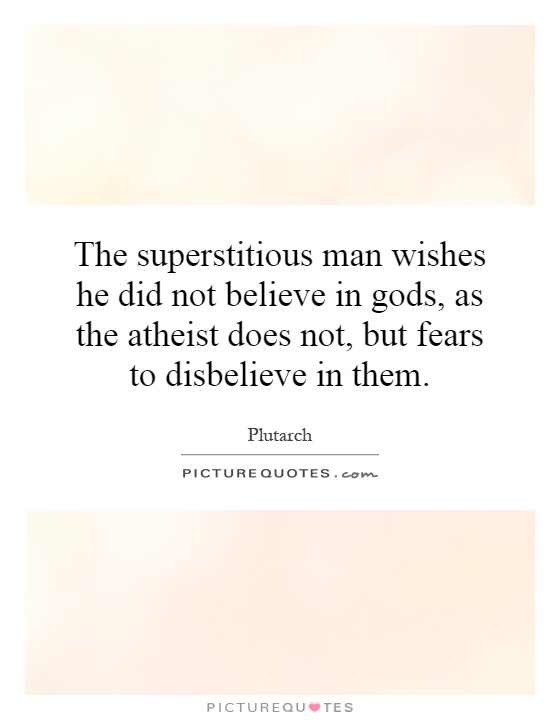The superstitious man wishes he did not believe in gods, as the atheist does not, but fears to disbelieve in them

The superstitious man wishes he did not believe in gods, as the atheist does not, but fears to disbelieve in them
Plutarch, the ancient Greek philosopher and historian, often explored the complexities of human belief systems and the ways in which they shape our lives. In his writings, he delved into the nature of superstition and atheism, two opposing viewpoints that have long been at odds with each other.The quote, “The superstitious man wishes he did not believe in gods, as the atheist does not, but fears to disbelieve in them,” encapsulates the internal struggle that many individuals face when it comes to matters of faith and belief. Superstition, with its reliance on supernatural forces and rituals, can be a comforting framework for those seeking to make sense of the world and find meaning in their lives. However, it can also be a source of fear and anxiety, as the superstitious individual may worry about angering the gods or facing punishment for their actions.
On the other hand, atheism offers a different perspective, one that rejects the existence of gods or higher powers altogether. For the atheist, there is a sense of freedom in not being bound by religious dogma or superstition. However, there can also be a sense of emptiness or uncertainty that comes with the absence of a higher power to provide guidance or comfort.
Plutarch’s observation that the superstitious man wishes he did not believe in gods, like the atheist, highlights the ambivalence that many people feel towards their beliefs. The superstitious individual may long for the intellectual clarity and freedom that atheism offers, but at the same time, they may be afraid to let go of their faith entirely. This fear of disbelief can stem from a variety of sources, including a fear of the unknown, a fear of losing one’s sense of identity, or a fear of facing the harsh realities of life without the comfort of a higher power to turn to.












 Friendship Quotes
Friendship Quotes Love Quotes
Love Quotes Life Quotes
Life Quotes Funny Quotes
Funny Quotes Motivational Quotes
Motivational Quotes Inspirational Quotes
Inspirational Quotes